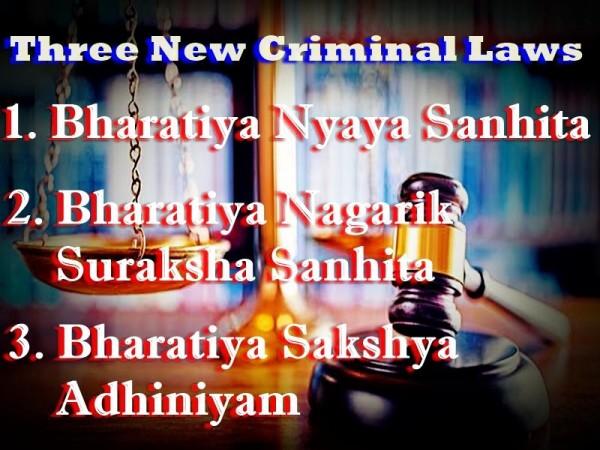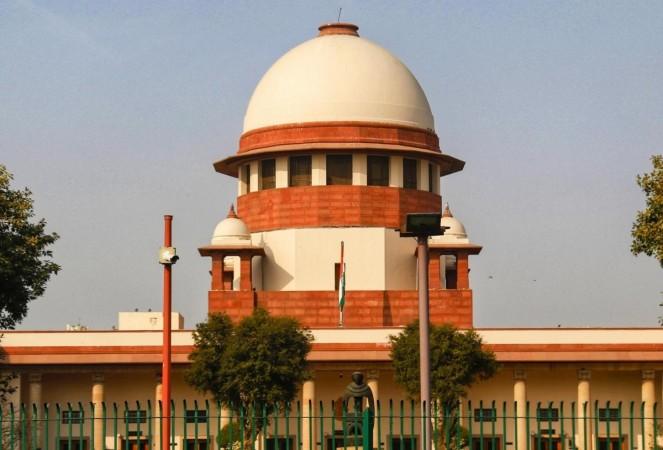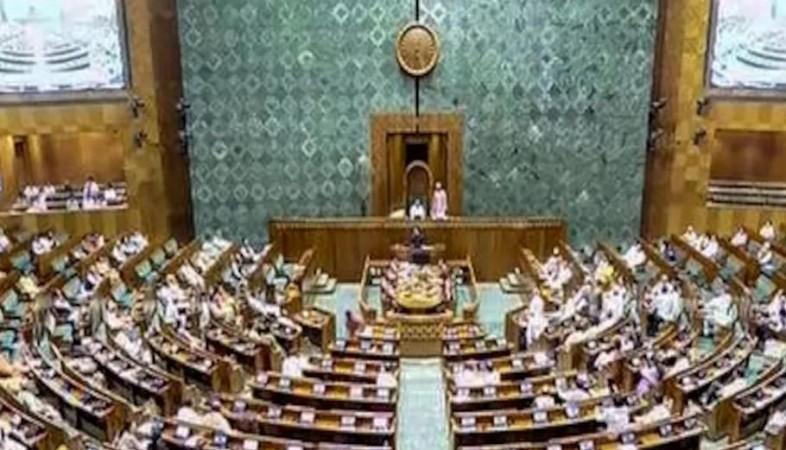
India has implemented three new criminal laws, replacing colonial-era codes, to modernize its justice system. The Ministry of Home Affairs has taken several initiatives for the smooth implementation of these laws, including updates to the CCTNS application. However, the implementation has faced criticism, with opposition parties accusing the government of forcibly passing the laws. Despite the criticism, the government is hopeful that the new laws will streamline legal processes and effectively address modern forms of crime.
India's legal system is set to enter a new era as it enforces new criminal laws, replacing colonial-era codes. The three new criminal laws -- Bharatiya Nyaya Sanhita, Bharatiya Nagarik Suraksha Sanhita, and Bharatiya Sakshya Adhiniyam -- were implemented nationwide on July 1, 2024. These laws are set to replace the colonial-era Indian Penal Code, Code of Criminal Procedure, and the Indian Evidence Act, respectively.
The new laws aim to modernize the justice system by introducing features like Zero FIR, online police complaint registration, electronic summonses via SMS, and mandatory videography of crime scenes for all serious offences. The Ministry of Home Affairs (MHA) initiated several preparations to ensure their effective implementation and to raise awareness among all stakeholders, including police, prisons, prosecutors, judicial, forensic personnel, and the general public.

The MHA undertook several initiatives to ensure the effective and smooth implementation of the new laws. Twenty-three functional updates were applied to the existing CCTNS (Crime and Criminal Tracking Network and Systems) application to align with the technological requirements of the new criminal laws, including FIR filing.
Technical support was provided to states/Union Territories (UTs) to facilitate a smooth transition to the new system. Support teams and call centers were established to provide continuous monitoring and assistance to states/UTs in implementing the new criminal laws. C-DAC (Centre for Development of Advanced Computing) is developing the CCTNS 2.0 application, which will incorporate secure cloud storage and features for crime scene videography and forensic evidence collection.
The MHA launched a mobile and web application called NCRB Compendium of Criminal Laws. It was made available on NCRB, Ministry of Home Affairs, Bureau of Police Research and Development (BPR&D), Sardar Vallabhbhai Patel National Police Academy (SVPNPA), iGot websites, as well as on Google Play Store and iOS. The e-Sakshaya app was developed that enables videography, photography of crime scenes, and document onboarding. It has been distributed to all police departments across states and Union Territories, with comprehensive testing completed.

However, the implementation of these new laws has not been without criticism. Congress President Mallikarjun Kharge criticized the Central government over the implementation of the three new criminal laws, saying that the INDIA bloc will not allow 'bulldozer nyay' to run on the Parliamentary system. He stated that the three laws of the criminal justice system that are being implemented were forcibly passed by suspending 146 MPs. Kharge said that the INDIA bloc would not allow this "bulldozer nyay" to disrupt the Parliamentary system.
These new laws aim to "modernise the justice system" but have also sparked outrage from the opposition parties. The laws were changed to ensure speedier justice and be in sync with this day and age and the new forms of crime that occur, the government has said. Judgments are now required within 45 days of completion of trial and charges are framed within 60 days of the first hearing.
New provisions have been made in view of emerging crimes like gang rapes, killing by mobs, false promises of marriage, and others. This will increase the demand for forensic experts across the country, which the NFSU (National Forensic Science University) will cater to.
The implementation of the new criminal laws in India marks a significant shift in the country's legal system. While the move has been met with criticism from some quarters, the government has taken extensive measures to ensure a smooth transition. These include comprehensive training initiatives, technological upgrades, and extensive publicity campaigns. As the new laws take effect, it remains to be seen how they will impact the justice system and whether they will achieve their aim of modernizing and streamlining legal processes.









